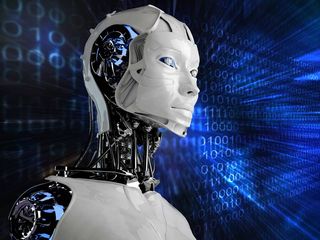Don't Let Artificial Intelligence Take Over, Top Scientists Warn

Artificial intelligence has the potential to make lives easier by understanding human desires or driving people's cars, but if it were uncontrolled, the technology could pose a serious threat to society. Now, Stephen Hawking, Elon Musk and dozens of other top scientists and technology leaders have signed a letter warning of the potential dangers of developing artificial intelligence (AI).
In addition to heavyweights like Hawking and Musk, the prominent physicist and billionaire founder of SpaceX and Tesla Motors, the letter was signed by top researchers at the Massachusetts Institute of Technology, Google and other institutions.
The letter touts the benefits of AI, but also warns of the possible risks.
"Because of the great potential of AI, it is important to research how to reap its benefits while avoiding potential pitfalls," reads the letter, which was published online Sunday (Jan. 11) by the Future of Life Institute, a volunteer organization focused on mitigating existential threats to humanity. In other words, the letter states, "Our AI systems must do what we want them to do." [5 Reasons to Fear Robots]
From speech recognition to self-driving vehicles, progress in AI is likely to have an increasing impact on humanity, the letter states. "The potential benefits are huge … The eradication of disease and poverty are not unfathomable," the letter says.
The statement goes on to stress that research in AI should focus not only on making AI more capable, but also on its benefits to society. Until now, AI research has focused primarily on "neutral" purposes, not beneficial ones, the authors say.
The letter refers to a document listing research priorities for AI, which include dealing with the impact of AI on employment, ensuring the ethical behavior of autonomous machines and weapons, and maintaining appropriate control over AI.
Sign up for the Live Science daily newsletter now
Get the world’s most fascinating discoveries delivered straight to your inbox.
It's not the first time Hawking, Musk and others have warned about the dangers of artificial intelligence. In December 2014, Hawking said the development of AI could "spell the end of the human race."
Last October, told an audience at MIT that AI is humanity's "biggest existential threat." Earlier in 2014, Musk, Facebook founder Mark Zuckerberg and actor Ashton Kutcher jointly invested $40 million in Vicarious PFC, an AI company that is working to create an artificial brain. The co-founders of Vicarious, Dileep George and Scott Phoenix, were also among those who signed the open letter.
Others who signed the letter include Peter Norvig, director of research at Google; Martin Rees, professor emeritus of cosmology and astrophysics at the University of Cambridge; Vernor Vinge, professor emeritus of computer science at San Diego State University; Frank Wilczek, Nobel laureate and physics professor at MIT; and many others.
Follow Tanya Lewis on Twitter. Follow us @livescience, Facebook & Google+. Original article on Live Science.
